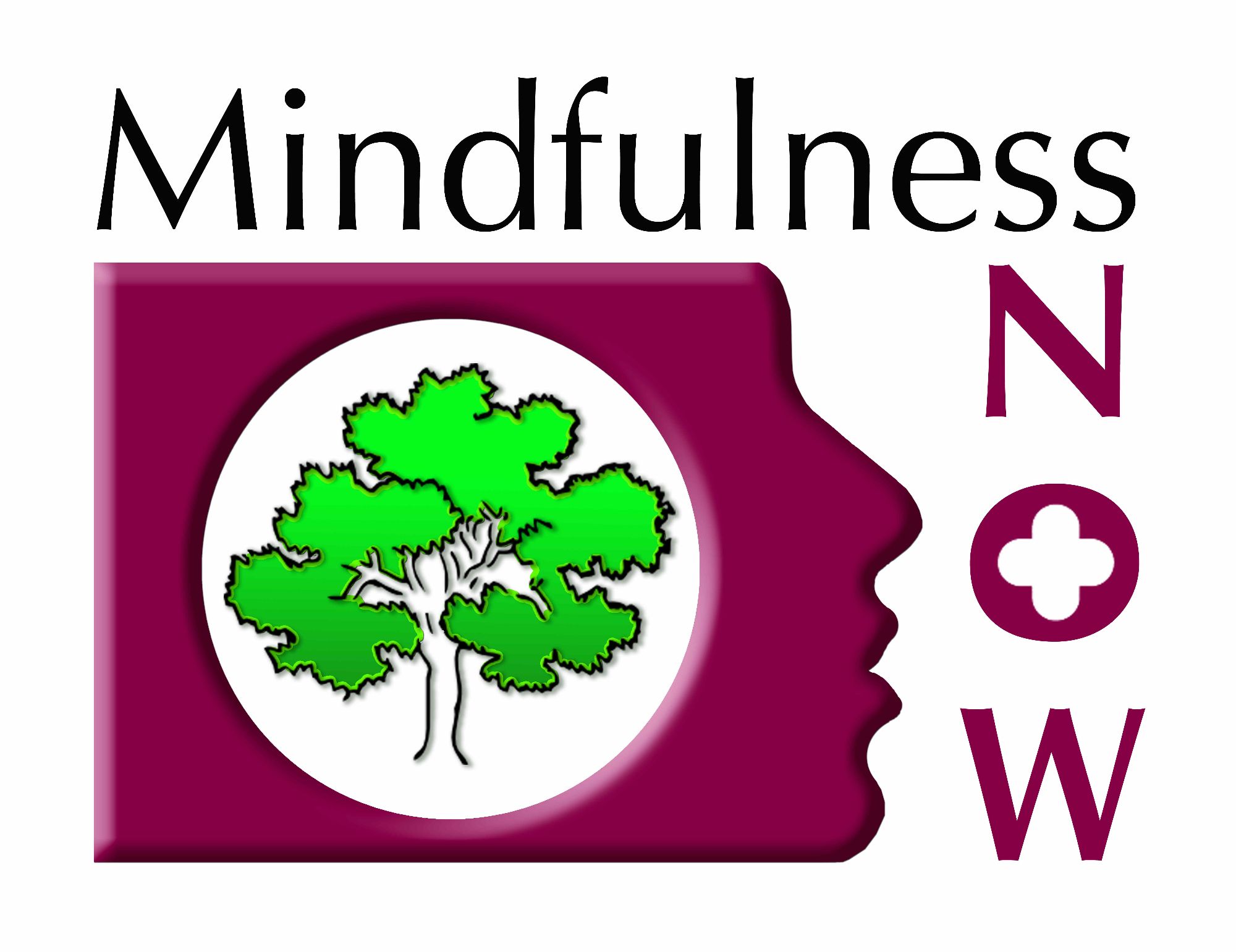Mindfulness - calm the chaos, nourish your mind

What is Mindfulness?
Our internal chaos
Most of us spend our waking lives caught up in
a tangle of stress-inducing thoughts. Our thoughts tend to whizz around our
minds frenetically, often yo-yoing between a pre-occupation with what we
perceive has happened to us in the past and what we need to do or are
anticipating may happen in the future.
This persistent mental chatter and rumination as we get stuck in our own heads can literally overwhelm us, leading us to
be anxious and self-critical, judgemental and impatient. As a result we end up being less
effective, less confident versions of ourselves. At worst we feel burned out from perpetual stress and anxiety, feeling unable to cope with life's changes and circumstances, everything seeming like it's a constant struggle to cope and keep all those multi-tasking plates spinning.
How often do we actually take
time to do absolutely nothing? Our mind, our most precious resource that we
depend on for everything we do is constantly on-the-go and yet, it rarely
occurs to us to take time to look after it.
As each of us strives towards our imagined future, the familiar refrain "If I can just get (insert task/deadline/to do list) done I'll feel better" or "I can't wait for my holiday...I'll finally be able to relax then" ring out in our minds. Most of us spend all our waking moments striving for some imagined future scenario....and then when we get there, if we get there, we start all over again striving for something else. The stress response is constantly in play between our minds and bodies and we rarely notice what's happening around us, within us, right here right now. So focused are we on getting to our destination that we rarely stop to smell the roses, to breathe the air, to take care of ourselves and enjoy the present moment.
From chaos to calm
Through mindfulness you get to step off the frenetic 'hamster wheel' of doing and striving, even for just a few moments at a time by learning to focus your full awareness on something in the present moment. Let me explain what I mean in a bit more detail:
Mindfulness helps us to better appreciate that the future hasn’t happened yet
and that the past is gone. Indeed, it reminds us
of the fact that all we actually ever have is this one moment followed
by this moment and this....and this....
Practicing mindfulness involves placing your full attention on an aspect of your experience in the present moment. You give your full attention not through doing or striving, but through the use of your
senses (sight, sound, touch, smell and taste).
As you do so, you learn to accept whatever your experience is in each moment without
the usual resistance or striving or judgement of the experience as either good or bad:
“[Being mindful] is to pay attention (i.e. through one or more of our senses), on purpose (i.e. one
moment at a time) and non-judgementally.”
Jon Kabat Zinn, founder of
Mindfulness Based Stress Reduction (MBSR)
So, in a nutshell, mindfulness is all about noticing what is happening in the present moment and accepting the experience as it is.
Indeed, being
mindful moves a person out of the usual mode of “doing” and into the mode of “being”
or “non-doing” for a few minutes at a time. So, during mindfulness practice you will learn how to put your full attention
on your breathing, or on sounds in and around you, on the sensations within your
bodies. You will then learn how to place attention on your
thoughts ( i.e. to just observe them which is very different from the usual tendency to wrapped up in them)
and/or place your attention on what you are feeling, on your emotions as well as on what you can see or
taste, smell or feel through touch.
As mindfulness is practiced, a kind of magic happens as the thinking part of our mind - the part of us that pre-occupies us with that exhausting onslaught of stress-inducing thoughts and feelings - naturally quietens (it can't do anything else when our full awareness is on something else). Mental space is created for calm, clarity and perspective to enter our experience. The stress about being stressed softens and fades away.
How we think and feel plays
a big part in our emotional health.
With mindfulness you learn to simply observe your thoughts and feelings from a position of curious observation. The space that this creates enables you to notice how thoughts and feelings just come and go -that just because they are there does not mean you have to act on them or become engulfed by them.
Mindfulness can be practiced both formally and informally. Formal methods take the form of engaging in meditation-type practise for varying lengths of time (no cross-legged pose or incense necessary, I promise! Unless you want to, of course...)
Informal approaches involve spending several minutes being fully
present, as it were, in the sensory experience of day to day activities.
What evidence is there about the effectiveness of mindfulness?
Due to a broad range of scientific findings proving its effectiveness, mindfulness is an accepted evidence-based approach. The good news is that scientific studies have demonstrated that the human brain is changeable (neuroplastic) throughout our lifetime. Furthermore, increasing numbers of studies of MRIs and brain imaging to explore the efficacy of mindfulness practice, have shown that it "reliably and profoundly alters the structure and function of the brain to improve the quality of both thought and feeling." (: Richard Davidson, Professor of Psychology and Psychiatry and Founder of the Center for Healthy Minds at the University of Wisconsin-Madison.)For example, MRI scans of the brain’s hippocampus, the area of the brain affecting learning, memory, compassion, introspection and self-awareness, have shown this area to increase in size in participants of mindfulness programmes. Conversely, the brain tissue of the amygdala, the almond shaped stress and fear centre of the brain, has been shown to reduce in size as a result of mindfulness practice.
Moreover, the practice of mindfulness for just several minutes per
day over 8 weeks can help improve our health, our general well-being and our performance in many ways including (listed in no particular order):
- Reduced anxiety and depression
- Control over
addictive behaviour (For example, mindful eating practices can help control food cravings, binge-, unhealthy- and distracted eating contributing to better weight management)
- Reduced stress and overwhelm; increased resilience
- Better management and control over chronic pain
- Better manage chronic fatigue syndrome
- Overcome insomnia & ability to have better quality sleep
- Improved clarity, focus, concentration and memory enhancement
- Greater confidence and self-esteem
- Improved relationships
- Enhanced creativity and intuitive ability
- Improved work-life balance and greater work satisfactionLearning mindfulness and its ongoing effectiveness requires a commitment to practicing it for a few minutes daily for the benefits to be maintained.
- The benefits gained from creating a new habit of regular mindfulness practice into your life are invaluable and will literally rewire your mind so that it becomes easier to not become engulfed by irrelevant or unhelpful thoughts and maintain your focus on the task at hand.

Learn Mindfulness Now
Having graduated from the UK College of Mindfulness Meditation, as an accredited Mindfulness Now
teacher and licensed practitioner and as someone who has benefited greatly from using mindfulness-based meditation in my own life for many years to over come personal health issues, I am both passionate about - and experienced in sharing - its life-changing benefits to both individual clients and groups.
I teach a blend of evidence-based Mindfulness Based
Cognitive therapy (MBCT) and Mindfulness Based Stress Reduction (MBSR) techniques.
The former was developed by Professor Mark Williams and colleagues at the
University of Oxford and offers a breakthrough in the treatment of
depression, anxiety and emotional trauma, and is recommended by NICE as a
treatment of choice for depression.
It combines mindfulness techniques like meditation, breathing (mind and
body awareness) with elements from cognitive behavioural therapy (CBT) to
help break the negative thought patterns that are characteristic of
recurrent depression.
The
MBSR programme was developed by Dr Jon Kabat-Zinn and colleagues at the University of
Massachusetts Medical Centre. It provides an integration of mindfulness meditation with
proven psychotherapeutic approaches in an accessible and
evidence-based approach which has been taught worldacutewide since 1979. Its evidence-based benefits include serious stress reduction and the improved management of pain, anxiety and illness.
I
provide sessions and programmes in a variety of settings and to suit individual needs and learning preferences:
- Individual 1-to-1 bespoke sessions in mindfulness-based practices, tailored to your specific needs and goals. This may or may not be combined with other therapy techniques, depending on the nature of the issue being treated.
- Mindfulness Now introductory workshops and 6 to 8-week programmes that combine both tailored individual and group sessions.
The tailored blend of MBSR and MBCT techniques that I teach in the Mindfulness Now programme can help you to reduce your stress levels , overcome anxiety/panic attacks/ emotional trauma, gain greater control and relief from pain and gain other invaluable benefits as listed above. - Bespoke Mindfulness Now resilience programmes within corporate and educational settings. These programmes are tailored to organisational needs, goals and cultural values and aim to support sustainable improvements in employee well-being, contribution, work performance, attendance, leadership and people management among others.
To read more about me and Central England College of which the UK College of Mindfulness Meditation forms part click here
As always, the first step to benefiting from the life-changing practice of mindfulness is to get in touch with me to discuss your needs and queries in more detail.Contact me today to find out more or to arrange a FREE no-obligation consultation
by phone or in person. I'll be able to answer any questions you have and discuss with you how I can best support you.
All communication and correspondence is treated in the strictest confidence.
DISCLAIMER: The therapeutic advice and
interventions that I provide on this website and during client sessions
are complementary therapies and for this reason they must not to be
seen as a substitute for professional healthcare advice from your GP and
other clinicians.
PLEASE SEEK MEDICAL ADVICE FROM YOUR GP IF YOU ARE IN DOUBT AS TO WHETHER MINDFULNESS IS A SUITABLE PRACTICE FOR YOU TO UNDERTAKE.
Results can differ between individual people.

